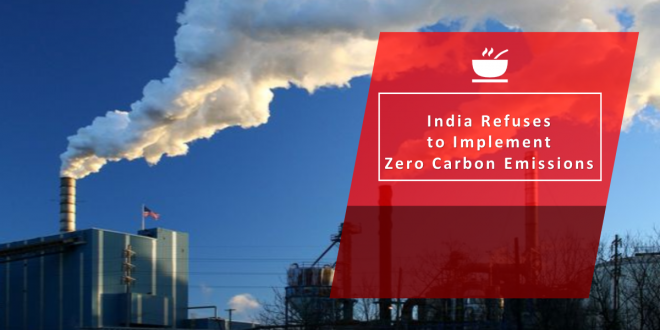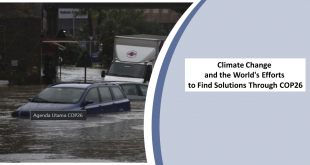India refuses to implement its zero carbon emissions target. This is because the country considers the current climate crisis to be caused by the carbon emissions of developed countries in the past.
Indian Environment Minister R. P. Gupta said his country is a victim of the climate crisis, not a contributor to emissions. He also said that net zero carbon is not the right way to solve climate problems.
“What’s more important is how much carbon you’re releasing into the atmosphere before you reach net zero carbon,” Gupta said.
Gupta said it’s better for the world to focus on identifying steps to reduce carbon emissions and counteract the rise in Earth’s temperature.
India is the third largest carbon emitter in the world. As a result of this predicament, the country is under pressure to commit to achieving carbon neutrality by at least the middle of this century.
These targets will then be updated with updates to COP26 and targets for hundreds of other countries.
According to Indian Environment Minister Bhupendra Yadav, India is well on its way to meeting the carbon emission reduction targets agreed in the Paris Agreement in 2015.
India itself is committed to reducing its country’s gross domestic product (GDP) emissions by 33 to 35 percent by 2030, from current emissions levels since 2005. In 2016, India succeeded in reducing its carbon emissions by 24 percent.
But Yadav said his country still needs international help to deal with its climate challenges.
“We can’t do this alone if we think we need to think about our economy,” Yadav said.
Yadav also emphasized that his country will not increase its carbon emission reduction targets because developed countries do not meet their carbon emission reduction targets.
“We think the historic responsibility should be taken seriously. As India is close to reaching the NDC (National Designated Contribution) on time,” he added.
Yadav also found it unreasonable to ask India to drastically reduce its use of coal. Meanwhile, developed countries need time to convert their energy from coal and gas to renewable energy.
Commenting on the COP26 Summit (Summit), Yadav evaluated that the success of the conference will be seen from the large amount of funds distributed to address climate issues. This fund is planned to be given to developing countries by developed countries.
At COP 26, representatives from around 200 countries will meet in Glasgow, Scotland, from Sunday (31/10) to Friday (12/11). These representatives met to discuss climate issues and the NDC goals agreed upon in the Paris Agreement.
The United States, the United Kingdom and the European Union have said their countries will reach net zero carbon by 2050. Meanwhile, China and Saudi Arabia aim to reach net zero carbon by 2060.
 KratomBorneo.co.id Seputar Informasi dan Tips
KratomBorneo.co.id Seputar Informasi dan Tips



